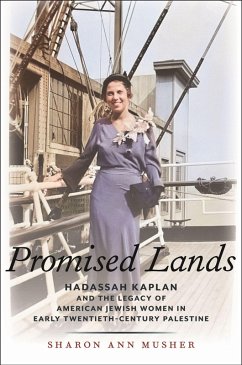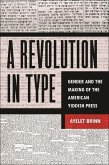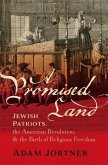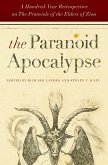"Drawing on the records of Hadassah Kaplan, a daughter of Mordecai Kaplan - founder of Reconstructionism -- this work shows how travel to Palestine in the Interwar period shaped a cohort of American Jewish women who went on to center Zionism in American Jewish institutions and communities"--
Hinweis: Dieser Artikel kann nur an eine deutsche Lieferadresse ausgeliefert werden.
Hinweis: Dieser Artikel kann nur an eine deutsche Lieferadresse ausgeliefert werden.








